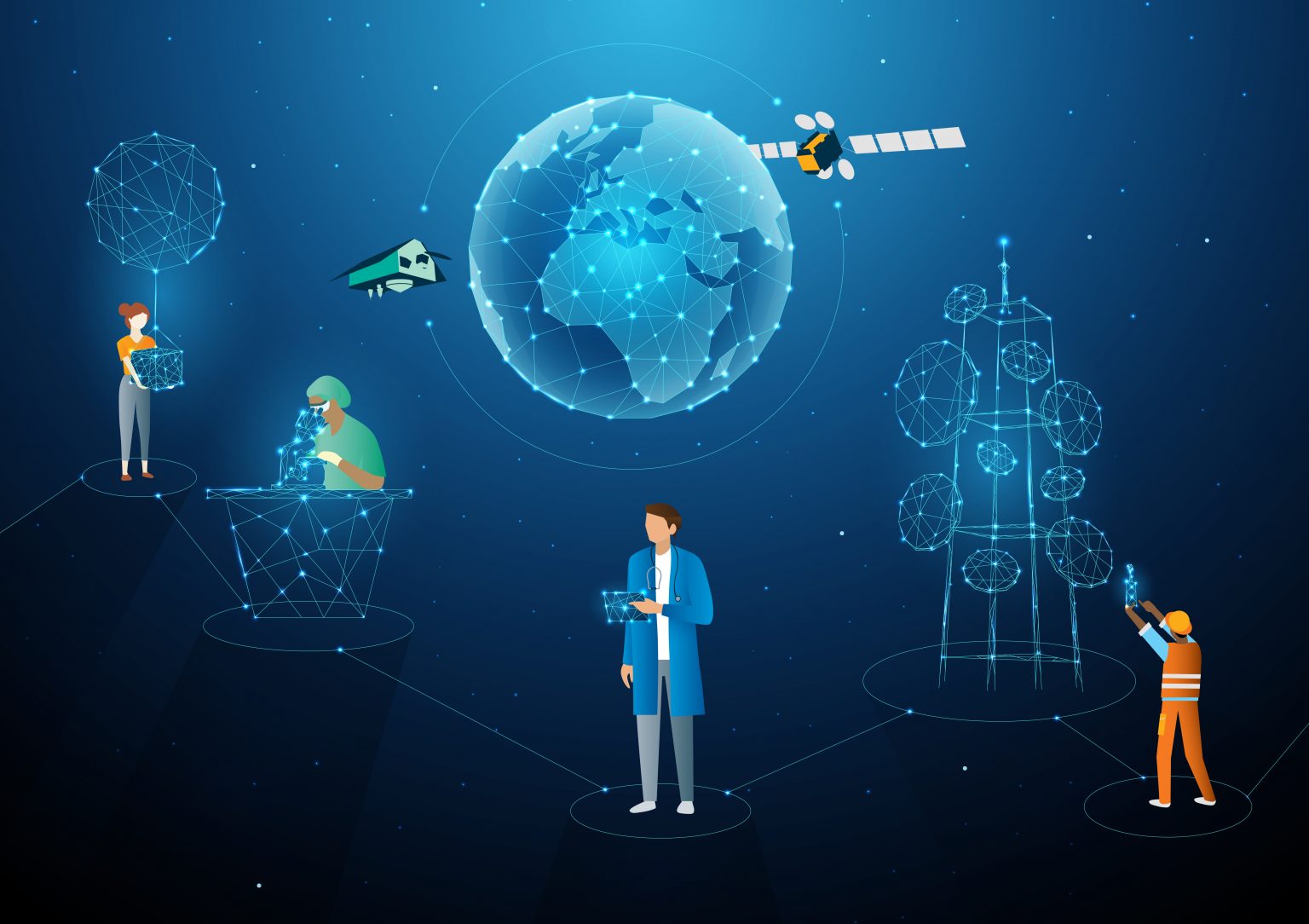What is Spacetech?
Everyone talks about Space Technology, but what is it anyway?
The space sector is essentially divided into two: Upstream and Downstream. The upstream sector includes the transportation of objects into space, ground stations and space exploration, while downstream refers to data and services that result from the upstream, primarily from satellites. A large number of applications for Earth therefore fall into the downstream sector.
This is precisely where the strength of the Austrian space sector lies. But this is also where the greatest potential for the economy lies across Europe: the downstream areas are where the sector is growing the most and where the most opportunities are. So the industry urgently needs talent that can translate the data and research gained with upstream technologies into downstream applications.
Upstream technologies and career opportunitiesThe downstream sector in particular offers many opportunities
Upstream can be described as the provision of space technology. This includes, for example, the provision of technology as prime contractor, contract research and development, supply of space components and space subsystems.
Or, more simply, the construction of satellites, rockets, space habitats and the manufacture of the materials and propulsion systems needed for them.
For many occupational fields, training in STEM subjects is indispensable, especially in the upstream sector. The upstream sector offers numerous career opportunities for aerospace engineers, electrical engineers, mechanical and engineering experts.
Downstream technology and career opportunities
Downstream can be described as the use of space technology provided. This includes, for example, the use of technologies such as satellite transmission services, Earth observation, navigation and satellite communication - in other words, services that have a lasting impact on and simplify our everyday lives. Without downstream technology, there would be no navigation system in the car, no functioning smart phone, no snow forecast before a skiing holiday. Precisely because of the diversity of application areas, the downstream sector is the area in space that brings the highest economic returns - and is also growing the fastest.
The downstream sector offers a wide range of career opportunities. From metrology to geology to epidemiology, from forestry to agriculture, from telecommunications to cybersecurity, from climate protection to animal welfare - the diversity of application areas for satellite data is also reflected in the diversity of career opportunities. Much of the downstream data is accessible and available free of charge. The analysis by geodata experts is therefore an important career field. This makes the downstream sector interesting and relevant, especially for many company and start-up founders.
Space as future for Earth
The many advantages of space technology tend to be pushed into the background by headlines such as "Millionaires in the race for space" and "Orbit as a dumping ground". In the public perception, space exploration often does not have a good reputation. Yet space has long been part of our everyday lives - and will remain so. Whether telecommunications, energy transition, climate protection, mobility transition or sustainable economic cycles: space technology makes a significant contribution and accelerates positive change. Whether for people, the climate or the economy, space really is for EVERYONE.
SpaceTech Master's programme of TU Graz
Since many years, TU Graz offers the postgraduate continuing education programme SpaceTech in cooperation with ESA and other international actors.
It is aimed at experts from the aerospace sector willing to deepen their knowledge of all relevant areas of space systems and business engineering in order to prepare for future management and leadership tasks. The course is designed to be part-time, with online elements and face-to-face units ad 7 European space locations, and concludes with an MSc (CE). Their claim: "SpaceTech creates tomorrow's space programme leaders"

